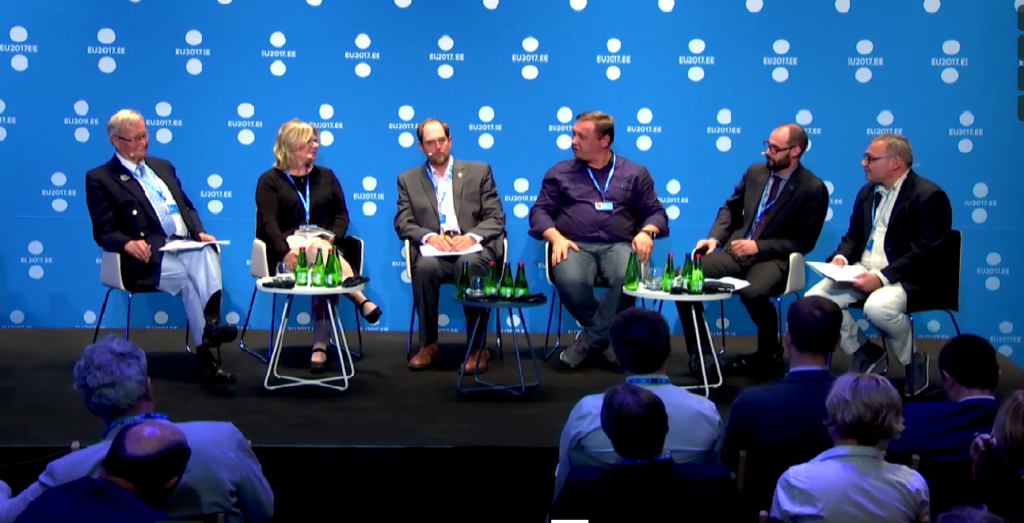The memorial conference for the victims of Communism and Nazism “The Heritage in 21st Century Europe of the Crimes Committed by Communist Regimes”
August 23, 2017 Tallinn Creative Hub (Kultuurikatel), Põhja blvd 27a

On August 23, the Estonian Institute of Historical Memory in cooperation with the Ministry of Justice of the Republic of Estonia organized a memorial conference for the victims of Communism and Nazism “The Heritage in 21st Century Europe of the Crimes Committed by Communist Regimes”. August 23 is the all-European Day of Remembrance of the victims of all totalitarian and authoritarian regimes. It was adopted by the European Parliament resolution on European conscience and totalitarianism on April 2, 2009.
The invitation of the Minister of Justice of the Republic of Estonia Urmas Reinsalu to take part in the conference was accepted by 19 ministries of justice of the EU and the Eastern Partnership member state as well as by the representatives of associations of victims of totalitarianism, the institutions and the organizations engaged in research on the crimes of totalitarian regimes and the remembrance for their victims.
Read the statement made by the Ministers of Justice on the same day.
The member of the European Parliament Tunne Kelam stressed in his introductory speech the necessity to strive for the common European perception of history to avoid romanticizing communist regimes as well as neglecting or marginalizing the crimes committed by these regimes.
In the following podium discussion moderated by Dr. Olaf Mertelsmann (University of Tartu) Tunne Kelam was joined by four historians: Dr. Anna Kaminsky (Germany), Prof. Andres Kasekamp (Estonia/Canada), Prof. Igor Cașu (Moldova) and Dr. Bartosz Dziewanowski-Stefańczyk (Poland). The discussion revealed several problems concerning the conference topic. Firstly, the difference between the political desires (the idea of the common European history) and the actual state of historical research was mentioned. The historians agreed that history as a strongly nation or state-centered science can never become a “nation-neutral” discipline without losing its essence. Therefore our aim is to create a situation where the European people are better informed about each other’s histories and are able to comprehend and come to terms with it. Here the second problem appears. Not to mention the general public, for the majority of Western European historians the specifics of the histories of Central and Eastern European peoples who lived under communist regimes still remain incomprehensible.
This is not because the Eastern and Central European historians’ research results are marginal but because of the lack of communication. Academic research is an insufficient mode to spread knowledge even among specialists. This is why books on general history topics through which authors can attract readers’ attention with their writing style are of great importance. Timothy Snyder’s popular books were mentioned as a good example. Another way to attract wider attention to the topics is to use modern media solutions as well as to create exhibitions on general topics. One such example is the “Communist Era” exhibition which was opened after end of the conference.
The conference and the following press conference are viewable on Vimeo:
23-08-2017 Memorial conference for the victims of communism and nazism from EU2017.EE on Vimeo.
2017-08-23 Press conference: The meeting of Ministers of Justice and ministerial delegations from EU2017.EE on Vimeo.








